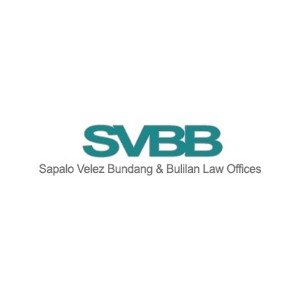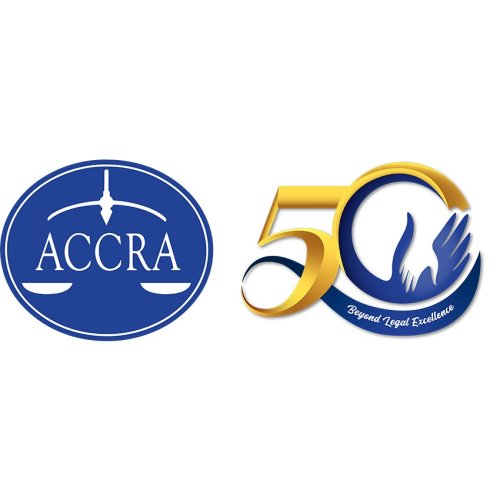Best Nonprofit & Charitable Organizations Lawyers in Davao City
Share your needs with us, get contacted by law firms.
Free. Takes 2 min.
List of the best lawyers in Davao City, Philippines
About Nonprofit & Charitable Organizations Law in Davao City, Philippines
Nonprofit and charitable organizations in Davao City, like elsewhere in the Philippines, operate as entities that are not intended to generate profit for owners or stakeholders. These organizations are typically geared towards serving a social, educational, charitable, or religious purpose. The regulatory framework governing these outfits is designed to support transparency, adherence to their stated missions, and appropriate use of funds. Davao City, being a major urban center in Mindanao, is home to numerous nonprofits working across various sectors such as education, healthcare, poverty alleviation, and environmental conservation.
Why You May Need a Lawyer
Several scenarios might necessitate legal assistance for those involved in nonprofit and charitable organizations in Davao City:
- Organization Formation: Drafting articles of incorporation and bylaws requires legal expertise to ensure compliance with Philippine laws.
- Tax Compliance: Understanding tax obligations and securing tax-exempt status can be complex and often requires professional legal advice.
- Governance Issues: A lawyer can help resolve internal disputes, ensuring the organization maintains good governance practices.
- Contractual Agreements: Legal counsel is crucial when entering into contracts with vendors, employees, or other entities.
- Regulatory Compliance: Legal guidance is important to comply with both local and national regulatory requirements.
- Property Acquisition: Managing the legalities involved in acquiring or leasing property for the organization.
Local Laws Overview
Nonprofit and charitable organizations in Davao City must adhere to both national and local regulations which include:
- Republic Act No. 11232 (Revised Corporation Code): This governs the incorporation and operation of nonprofit entities including specific provisions for non-stock corporations.
- Bureau of Internal Revenue (BIR) Regulations: These determine the qualification and maintenance of tax-exempt status in the Philippines.
- Local Government Code of 1991: Involves guidelines regarding the taxation and operation of nonprofit organizations at the local government level.
- Local Ordinances: Davao City's government may enact specific ordinances that impact nonprofit operations, such as zoning laws affecting premises use.
Frequently Asked Questions
What is the process for registering a nonprofit in Davao City?
To register a nonprofit, you must prepare and file articles of incorporation and bylaws with the Securities and Exchange Commission (SEC). Registration requirements also include securing licenses and permits from both the city government and relevant national government agencies.
Are there specific tax benefits for nonprofits in the Philippines?
Yes, nonprofits may qualify for tax exemptions. They must apply for tax-exempt status with the Bureau of Internal Revenue (BIR) and comply with relevant requirements and reporting obligations.
Can a nonprofit in Davao City hire employees?
Yes, nonprofits can hire employees. However, they must comply with labor laws concerning employment contracts, minimum wage, benefits, and other labor standards.
What types of activities can affect the tax-exempt status of a nonprofit?
Engaging in commercial activities that are not related to the nonprofit’s primary mission can threaten its tax-exempt status unless such activities are adequately justified under relevant regulations.
How frequently must a nonprofit file reports, and to whom?
Nonprofits are required to submit annual reports to the SEC and BIR detailing their financial status, activities, and compliance with tax obligations.
What is the role of the board of trustees in a nonprofit?
The board of trustees is responsible for governing the nonprofit, ensuring that it adheres to its mission, managing resources responsibly, and complying with legal obligations.
Can a nonprofit organization generate revenue?
Yes, nonprofits can generate revenue, but it must be reinvested into the organization to further its mission rather than distributed as profit.
Is it possible for a foreigner to establish a nonprofit in Davao City?
Foreigners can establish nonprofits in the Philippines, but there are specific restrictions and requirements regarding foreign equity and participation.
What happens to the assets of a dissolved nonprofit?
Upon dissolution, the assets of a nonprofit must be distributed according to the provisions of its articles of incorporation/bylaws, typically to another nonprofit organization.
How can a nonprofit change its registered office or principal place of business?
To change its registered address, a nonprofit must notify the SEC and amend its articles of incorporation. Local zoning ordinances must also be complied with.
Additional Resources
For further information or assistance with nonprofit and charitable organization matters in Davao City, consider contacting the following:
- Securities and Exchange Commission (SEC): Oversees the registration and regulation of nonprofits.
- Bureau of Internal Revenue (BIR): Handles tax compliance and exemption matters.
- Department of Social Welfare and Development (DSWD): Offers guidance and resources for social welfare organizations.
- Davao City Local Government: Provides localized support and resource information for operating NGOs within Davao City.
Next Steps
If you require legal assistance in handling nonprofit and charitable organization issues in Davao City, consider taking the following steps:
- Contact a lawyer specializing in nonprofit law to discuss your particular needs and to receive tailored advice.
- Gather all relevant documentation regarding your organization for review and provide these to your legal counsel.
- Identify specific legal areas of concern (e.g., registration, tax compliance) to prioritize them during consultations.
It’s crucial to approach any legal matters with thorough preparation and professional guidance to ensure your nonprofit continues to thrive and comply with all relevant laws and regulations.
Lawzana helps you find the best lawyers and law firms in Davao City through a curated and pre-screened list of qualified legal professionals. Our platform offers rankings and detailed profiles of attorneys and law firms, allowing you to compare based on practice areas, including Nonprofit & Charitable Organizations, experience, and client feedback.
Each profile includes a description of the firm's areas of practice, client reviews, team members and partners, year of establishment, spoken languages, office locations, contact information, social media presence, and any published articles or resources. Most firms on our platform speak English and are experienced in both local and international legal matters.
Get a quote from top-rated law firms in Davao City, Philippines — quickly, securely, and without unnecessary hassle.
Disclaimer:
The information provided on this page is for general informational purposes only and does not constitute legal advice. While we strive to ensure the accuracy and relevance of the content, legal information may change over time, and interpretations of the law can vary. You should always consult with a qualified legal professional for advice specific to your situation.
We disclaim all liability for actions taken or not taken based on the content of this page. If you believe any information is incorrect or outdated, please contact us, and we will review and update it where appropriate.












